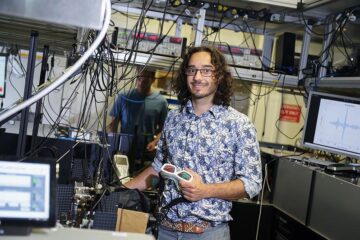‘Demographic time-bomb’ does exist for engineering in academia

The Royal Academy of Engineering welcomes the recently published report, ‘Academic staff: trends and projections’, by the Higher Education Funding Council for England (HEFCE). The report provides definitive numerical evidence of significant staff shortages facing university engineering departments. There is a ‘demographic time-bomb’ for engineering caused by growing numbers of academic staff reaching retirement age by 2010, although this does not apply to higher education in general. The situation for engineering has been made even worse by the falling rate of staff recruitment in recent years.
Earlier this year, a Royal Academy of Engineering report expressed concern over the diminishing numbers of high-calibre, engineering PhD students permanently based in the UK (‘Doctoral Level Research Students in Engineering: A national concern’). HEFCE were urged to conduct a survey to assess the likelihood of a future shortage in the teaching capabilities of university engineering departments. Mr Philip Ruffles, a Vice-President of The Academy, stated ‘this HEFCE report confirms The Academy’s worst fears.’
Based on the HEFCE report’s data, for engineering and related subjects, staff numbers fell by nearly 10% between 1995 and 2000 and if current recruitment rates continue, staff numbers will be 14% lower by 2010 than in 1998. In fact, an increase in recruitment rates of between 22 and 36% is required just to maintain the current numbers of staff. Mr Ruffles commented that the reality could be even worse. ‘We know that many institutions have severe difficulty in recruiting and retaining staff in engineering-related subjects. An increase in staff numbers would require an even greater rise in the recruitment rate. The Academy has already identified a number of issues detrimental to engineering staff recruitment and retention, such as low salaries, working conditions of lecturers and inappropriate use of short-term contracts. Prompt and effective measures must now be undertaken to address these’.
A further cause for alarm is provided by the age profile, which shows that the percentage of academic engineering staff under 40 has fallen from 27% to 23% between 1995 and 2000, with the percentage of staff under 30 almost halving from 2.7% in 1995 to 1.5% in 2000. On a more positive note, although women only accounted for just under 10% of engineering lecturers in 2000, the proportion of women lecturers in engineering actually rose by more than 25% between 1995 and 2000. Mr Ruffles commented that ‘this is encouraging, but women are still under-represented in engineering. We need to make better use of this resource in our efforts to improve recruitment rates.’
Much of the engineering activity centred around university departments has a direct impact on the economic health of the country. Many of the products on shelves arise from engineering research performed by talented engineers in our universities. Mr Ruffles commented that ‘The Academy is doing all that it can to increase the number of engineering undergraduates, for example through The Academy’s Best programme which attracts the most able students to engineering. We must ensure that high quality teaching is available to these university students and thereby safeguard the future capacity of the UK for innovation and wealth creation’.
Media Contact
Weitere Informationen:
http://www.raeng.org.uk/news/publications/submissions/Alle Nachrichten aus der Kategorie: Bildung Wissenschaft
Neueste Beiträge

Neue universelle lichtbasierte Technik zur Kontrolle der Talpolarisation
Ein internationales Forscherteam berichtet in Nature über eine neue Methode, mit der zum ersten Mal die Talpolarisation in zentrosymmetrischen Bulk-Materialien auf eine nicht materialspezifische Weise erreicht wird. Diese „universelle Technik“…

Tumorzellen hebeln das Immunsystem früh aus
Neu entdeckter Mechanismus könnte Krebs-Immuntherapien deutlich verbessern. Tumore verhindern aktiv, dass sich Immunantworten durch sogenannte zytotoxische T-Zellen bilden, die den Krebs bekämpfen könnten. Wie das genau geschieht, beschreiben jetzt erstmals…

Immunzellen in den Startlöchern: „Allzeit bereit“ ist harte Arbeit
Wenn Krankheitserreger in den Körper eindringen, muss das Immunsystem sofort reagieren und eine Infektion verhindern oder eindämmen. Doch wie halten sich unsere Abwehrzellen bereit, wenn kein Angreifer in Sicht ist?…





















